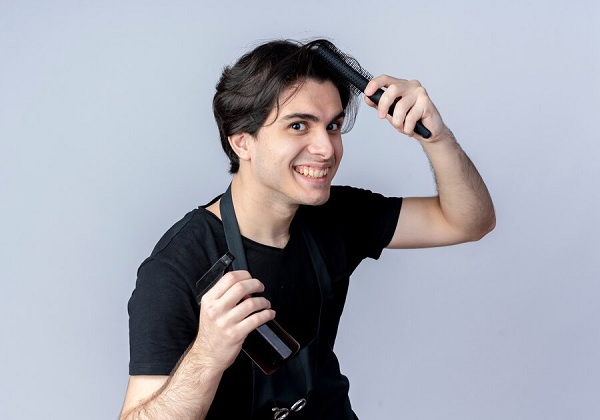2025-03-12 00:00:00-04:00
How to improve your lifestyle with a hair transplant

Hair loss can significantly affect one's self-esteem and overall quality of life. Advancements in hair restoration procedures, such as hair transplants, offer effective solutions to combat hair loss. Beyond the aesthetic improvements, undergoing a hair transplant can lead to profound enhancements in various aspects of daily living.
Understanding Hair Transplants
A hair transplant is a surgical procedure that involves relocating hair follicles from a dense growth area, typically the back or sides of the scalp, to balding or thinning regions. This method is primarily employed to address male pattern baldness but is also applicable for restoring eyelashes, eyebrows, and beard hair. The two predominant techniques are:
• Follicular Unit Transplantation (FUT): In this method, a strip of scalp is excised from the donor area, and individual follicular units are meticulously dissected and transplanted to the recipient site.
• Follicular Unit Extraction (FUE): This technique involves the individual extraction of hair follicles directly from the donor area, minimizing scarring and promoting quicker recovery.
Psychological Benefits
The psychological impact of hair loss is profound, often affecting self-confidence and social interactions. Individuals experiencing hair thinning may feel self-conscious, leading to reduced participation in social activities. A successful hair transplant can restore a more youthful appearance, significantly boosting self-esteem and encouraging a more active social life.
Enhanced Social and Professional Opportunities
In today's image-conscious society, appearance can influence professional opportunities and social engagements. Individuals with a fuller head of hair may be perceived as more vibrant and energetic, potentially opening doors to career advancements and enriching personal relationships.
Improved Mental Well-being
Addressing hair loss can alleviate feelings of anxiety and depression associated with self-image concerns. The positive change resulting from a hair transplant can lead to a more optimistic outlook, contributing to overall mental well-being.
Physical Comfort and Practical Advantages
Beyond aesthetics and psychology, hair transplants offer practical benefits. Individuals no longer need to rely on concealing methods like wigs or hats, which can be uncomfortable, especially in warm climates. Additionally, the restored hair allows for greater freedom in hairstyling, enhancing personal expression without the limitations imposed by thinning or balding areas.
Long-term Investment in Self-care
Undergoing a hair transplant is often viewed as a commitment to personal well-being. It reflects a proactive approach to self-care, encouraging individuals to prioritize their health and appearance. This investment can lead to sustained positive habits, including improved nutrition, regular exercise, and attentive skincare routines, further enhancing one's quality of life.
Considerations and Expectations
It's essential to approach hair transplants with realistic expectations. The results are not instantaneous; it may take several months to observe significant changes as the transplanted hair follicles establish and grow. Moreover, not all candidates are suitable for the procedure. Factors such as the extent of hair loss, donor hair availability, and overall health play crucial roles in determining candidacy. Consulting with a qualified and experienced hair transplant surgeon is vital to assess individual suitability and to receive personalized advice.
Lifestyle Factors Influencing Hair Transplant Success
Lifestyle choices play a significant role in the success of a hair transplant. Maintaining a balanced diet rich in essential nutrients supports hair health. Regular exercise promotes good blood circulation to the scalp, aiding in the healing process and the growth of transplanted hair. Additionally, protecting the scalp from excessive sun exposure by wearing a hat or applying sunscreen is crucial during the recovery phase.
Postoperative Care and Recovery
The postoperative period is critical for the success of a hair transplant. Following the surgeon's aftercare instructions, avoiding smoking and excessive alcohol consumption, and attending follow-up appointments contribute to optimal healing and hair growth. It's also important to manage expectations, as the full results of a hair transplant may take several months to become evident.
Conclusion
Incorporating a hair transplant into one's lifestyle can lead to substantial improvements in self-image, social interactions, and overall well-being. By restoring hair, individuals often experience a renewed sense of confidence and engagement in various life aspects. However, it's imperative to approach the decision thoughtfully, ensuring that expectations align with realistic outcomes and that the procedure is performed by reputable professionals. Ultimately, for many, a hair transplant serves as a catalyst for a more fulfilling and confident life.